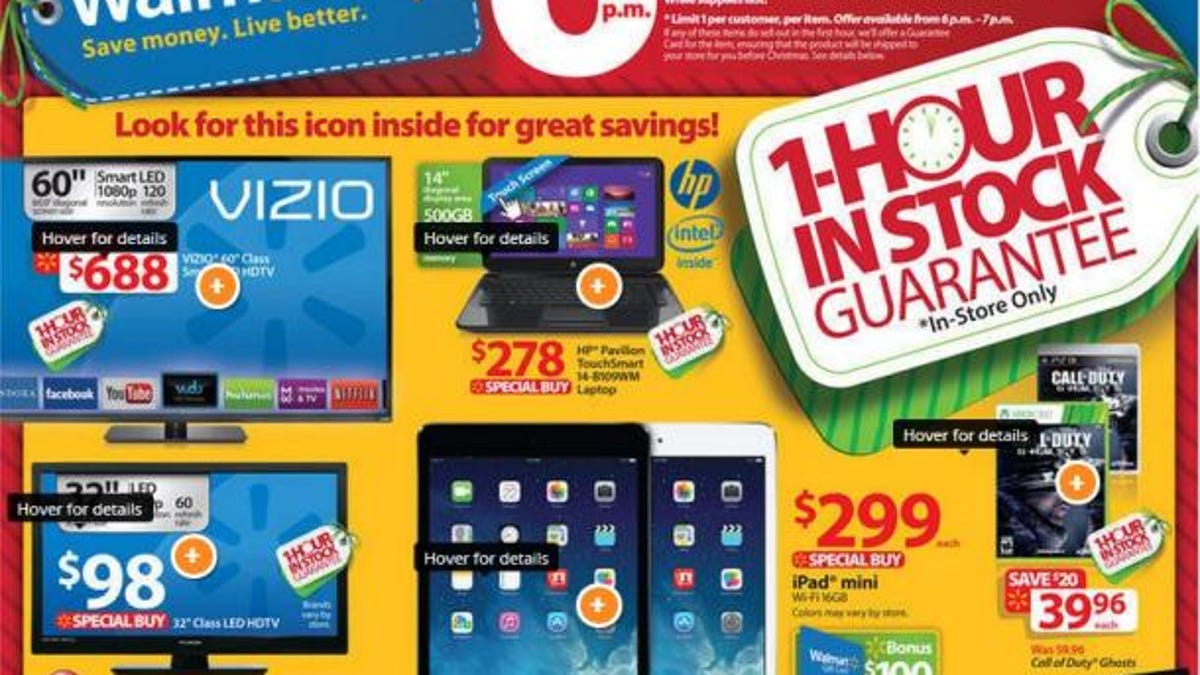Is that Black Friday deal really a deal?
It's easy to get sucked in by the hype. Here's how to make sure you're really getting a bargain.

Black Friday deals might be amazing, but they might be nothing special. Do your homework to find out which is which.
Get a 75-inch TV for $99! Get a Roku Ultra and double-lifetime Netflix subscription for £12.75! Take this drone for just AU$50!
OK, maybe Black Friday hype isn't that extreme, but this is definitely the time of year when stores fall all over themselves to whip customers into a buying frenzy. This includes not only leaking Black Friday ads well in advance, but also running hyperbolic sales in the weeks leading up to the big day. ("Black-November Sale!" "Cyber-Saturday Sale!" "Please-For-One-Day-Shop-Somewhere-Besides-Amazon Sale!")
But how can you separate the hype from the reality? How you can you make sure that any Black Friday deal -- either on the day or leading up to it -- is really a deal? Start by asking yourself these four questions:
Is it something you really want?
The LOWEST PRICE EVER on a Flangie Whip Spinner?! Hot dog!
Wait, what the heck is a Flangie Whip Spinner? You've only just now heard of it, and although you weren't really shopping for one, just look at that price! You'd be crazy not to buy one!
Stop. Deep breath. Many stores slash prices on obscure products just to get you in the door. These so-called loss leaders may be great bargains, but it's still money you probably wouldn't have spent otherwise.
Bottom line: Don't buy something just because it's a good deal. Buy it because it's something you need or want.
Is it a current model?
I'm a big proponent of buying last year's TV, last year's laptop, last year's phone -- because you'll typically save big over the latest model without sacrificing much.
Ah, but on Black Friday, some stores trot out older models at lower prices while positioning them as hot new products. That's fine, so long as you do your homework. Make sure, for example, that the TV you're looking at isn't a couple years out of date, with lower resolution or lesser speakers than its newer counterparts.
Bottom line: Research different models so you're sure you're getting the one you want -- or at least one you can live with.
Is it on sale anywhere else?
The store with the biggest, splashiest ad may not be the one with the lowest price. As always, it pays to shop around: Hit up Google or your preferred shopping-search engine and see if you can find a deal that's as good or better.
To that end, I recommend PriceBlink, a browser add-on that can show you at-a-glance if a particular product is available for less elsewhere. It can also find coupon codes and notify you if/when a product goes on sale.
Remember, too, that sometimes prices are set by manufacturers, and therefore don't vary from one store to another -- Apple products are a good example -- but some stores will add bonus items to the mix: a case, a gift card and so on.
Bottom line: Don't assume any one store has the best deal, regardless of what its ad says.
What's the price history?
Probably the single best way to tell if a deal is really a deal is to check its price history. For example, if you see a Fitbit Versa on sale for $179, you might think that's a pretty good savings, given that it lists for $199. But guess what? At one point it was selling for $169 -- and probably will be again.
How can you investigate a product's price history? If you're shopping Amazon , I recommend CamelCamelCamel: Just type in a product name or paste in an Amazon URL and it will give you a complete price history -- including any given product's all-time low.
You should also check out Honey, a browser add-in that can show price histories at not just Amazon, but also Best Buy , Target , Walmart and other stories. (Alas, it goes back only six months, maximum, but it's still good data to have.) Honey also has a wish-list/price-drop feature similar to PriceBlink's, and there's a cashback component as well.
Bottom line: Don't assume that Black Friday prices are the lowest prices. Marketing claims notwithstanding, some stores offer better deals at other times of the year.
Originally published on Oct. 16, 2017
Update, Oct. 30: Updated for 2018.
Read more: 5 things you need to know about Black Friday
Read more: How to save even more on Black Friday and Cyber Monday

